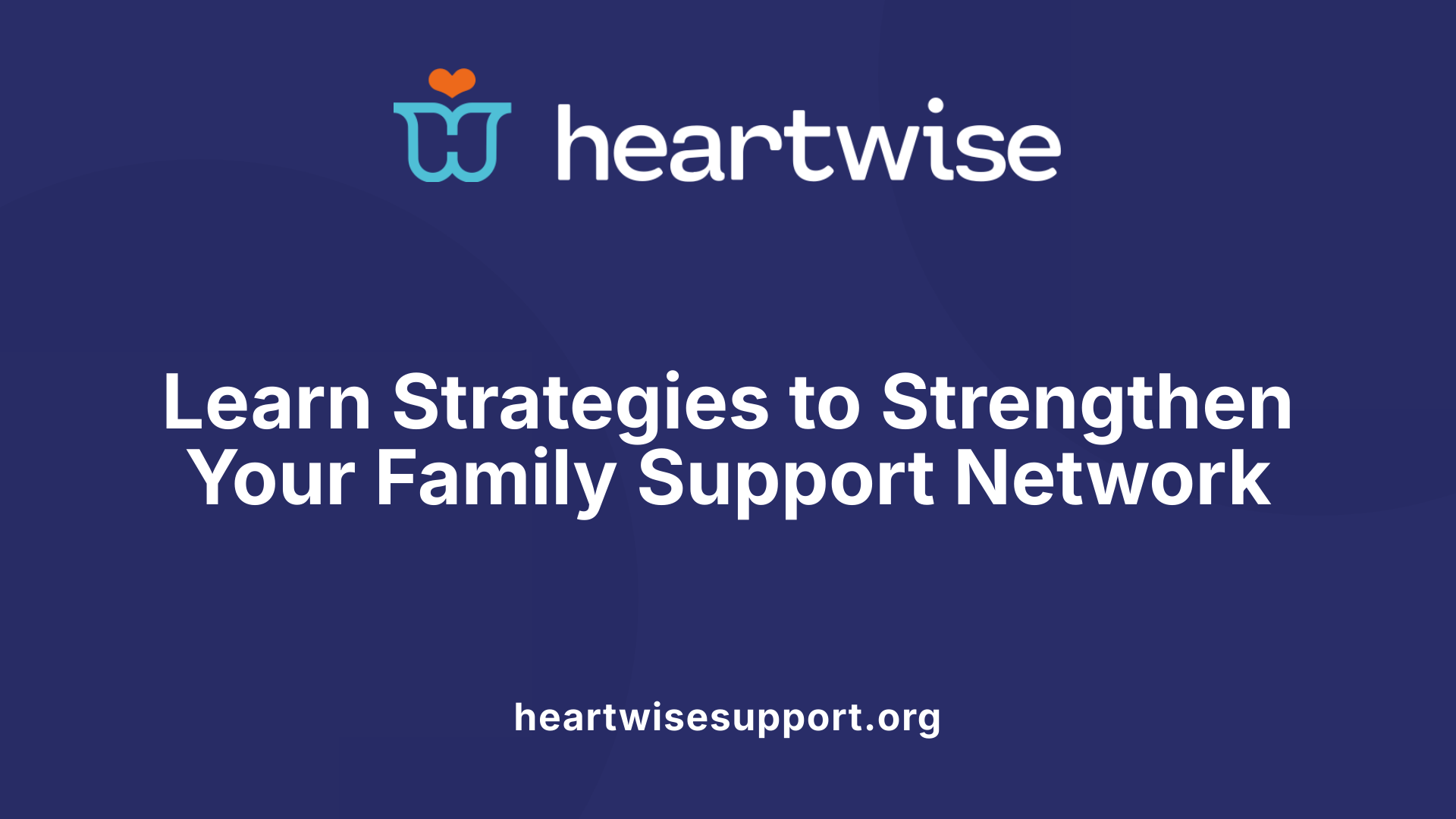Understanding the Power of Family in Stress Management
Family support is a fundamental factor influencing physical and mental health, acting as a buffer against the adverse effects of stress. This support system fosters emotional, practical, and social resources that not only alleviate stress but also promote resilience and overall well-being. As research continues to uncover the neurobiological mechanisms underpinning these benefits, it becomes clear that nurturing strong family bonds should be a priority in health care, community programs, and individual strategies for managing life's challenges.
The Mechanisms of Family Support in Reducing Stress

How does family help reduce stress?
Family plays a crucial role in alleviating stress by providing emotional bonds, safety, and understanding. Emotional support from family members helps individuals cope with life's challenges more effectively. Spending quality time with loved ones, especially face-to-face interactions, not only eases feelings of depression and anxiety but also benefits physical health through shared laughter and physical touch. Interpersonal interactions within families help build social skills, reinforce shared values, and allow members to share perspectives, which enhances understanding and self-identity. Family activities foster conflict resolution, joint problem-solving, and create a sense of community. These experiences boost confidence across all age groups and develop resilience. Overall, active family engagement creates a support network that reduces stress and fosters mental well-being.
How does social support influence neurobiological responses to stress?
Social support impacts neurobiological systems involved in stress and emotion regulation. When supportive interactions occur, they activate neural pathways associated with safety and social bonding, notably within regions such as the ventromedial prefrontal cortex (vmPFC). Activation of the vmPFC signals safety, inhibiting brain areas responsible for threat responses. Crucially, neuropeptides like oxytocin and vasopressin released during positive social interactions play central roles. Oxytocin, dubbed the "bonding hormone," can inhibit the hypothalamic-pituitary-adrenal (HPA) axis, resulting in lower cortisol production, the body’s primary stress hormone. This hormonal response dampens the physiological reactions to stress, such as increased heart rate and blood pressure. Moreover, social support activates neural pathways related to mentalizing, involving regions like the dorsomedial prefrontal cortex (DMPFC) and temporoparietal junction (TPJ). These pathways reduce activity in threat-related regions like the amygdala, decreasing feelings of fear and threat. Early social experiences and secure attachments shape these neural mechanisms, making individuals more resilient to stress throughout life. The neuropeptide oxytocin not only influences emotional bonding but actively participates in stress regulation by modulating neural circuits involved in threat perception and emotional regulation.
Why is family support important in mental health?
Family support is fundamental for mental health because it nurtures self-esteem, hope, and confidence, which are vital for recovery from mental health issues. Supportive family environments buffer individuals against feelings of loneliness, helplessness, and stigma that often hinder mental wellness. Active family involvement in promoting healthy routines, open communication, and effective stress management directly correlates with better treatment adherence and reduced relapse rates. Engaged families can help identify early warning signs of mental health deterioration, ensuring timely intervention. Supporting mental health within families also boosts emotional resilience, reduces feelings of shame, and fosters a sense of belonging, which promotes overall psychological well-being.
What is the positive impact of family support?
Family support exerts numerous positive effects on individuals, especially children. It provides love, protection, and the resources necessary for emotional and physical growth. Through consistent support, children learn social skills, moral values, and develop healthy relationship behaviors such as empathy and active listening. A strong family bond creates a secure environment, allowing children and adults alike to manage stress better. Supportive family environments promote feelings of safety, which help in developing emotional stability. Additionally, family support encourages responsibility, accountability, and resilience. As families adapt, they offer ongoing guidance that fosters mental and physical health benefits, leading to a more adaptable, confident, and balanced individual.
How does spending time with family improve mental health?
Spending quality time with family strengthens emotional bonds and provides a sense of belonging crucial for mental health. Face-to-face interactions are particularly effective in reducing loneliness, stress, and anxiety. Shared activities—such as meals, walks, and conversations—offer emotional comfort, build resilience, and foster better coping strategies. Emotional support from family during difficult times enhances well-being and promotes a positive outlook. Moreover, family time encourages healthy behaviors, enhances self-esteem, and teaches stress management skills. This contributes to emotional stability and can positively influence longevity. Overall, regular family interactions nurture psychological health by decreasing feelings of isolation, fostering understanding, and creating a safety net for life's inevitable stresses.
What strategies can help strengthen family support networks?
To strengthen family support, families should prioritize open communication, active listening, and shared activities like family dinners or game nights. Regular family meetings can improve emotional health by addressing concerns collectively. Building connections outside the immediate family—such as participating in community events, volunteering, or joining support groups—can broaden support networks. Connecting with support resources like family therapy, community programs, and mental health services further augments resilience. Developing social skills and encouraging proactive help-seeking behaviors are vital. Families should also focus on developing supportive routines, creating a respectful environment, and fostering mutual understanding. Engaging in culturally responsive interventions and involving professionals when necessary ensures that mental health and support needs are met effectively.
How does neurobiological response modulation by social support enhance resilience?
Supportive social interactions modify neurobiological responses by activating regions involved in safety signaling and emotional regulation. The presence of trusted figures or attachment objects triggers neural circuits that promote calmness and inhibit threat detection. The hormone oxytocin plays a central role: its release during social contact inhibits HPA axis activity and reduces cortisol, leading to lowered physiological stress responses. Neural pathways involved in social cognition, such as those governing mentalizing and emotion regulation, are activated through social support, resulting in decreased activity in the amygdala— the brain’s fear center. These neurobiological adjustments promote resilience by reducing the body's stress response, allowing individuals to recover more quickly and maintain mental well-being.
What role does family involvement play in mental health treatment and management?
Family involvement enhances mental health treatment by providing emotional backing, helping disseminate information, and supporting adherence to therapy plans. Families can aid in early detection of symptoms, reinforce coping strategies, and create a supportive environment for recovery. Including family members in therapy sessions, psychoeducation, and relapse prevention plans improves treatment outcomes. Family participation also contributes to lowering stigma, as open dialogue normalizes mental health issues and promotes understanding. Addressing family dynamics and improving communication during treatment further enhances long-term mental health management.
What practical tips can families adopt to manage stress and promote well-being?
Families can adopt several practical strategies:
- Establish routines that include self-care activities such as balanced nutrition, regular physical activity, and appropriate sleep.
- Create a peaceful and organized home environment to foster a sense of control.
- Encourage open discussions about worries and stresses, promoting transparency and mutual understanding.
- Model calm and healthy stress management behaviors like deep breathing, mindfulness, and relaxation techniques.
- Engage in enjoyable activities involving laughter and shared interests to boost mood.
- Involve children in age-appropriate problem-solving tasks to promote confidence and skills.
- Seek professional help when stress becomes overwhelming or persists. Implementing these strategies fosters resilience, emotional stability, and overall well-being for all family members.
Fostering Family Bonds for Better Health
Building and nurturing strong family support networks is a proactive strategy to reduce stress and improve health outcomes. Through emotional connection, effective communication, and shared activities, families can enhance resilience, promote mental well-being, and foster healthier behaviors. Incorporating evidence-based approaches, such as family therapy and community involvement, plays a crucial role in creating supportive environments at home and beyond. Recognizing the neurobiological underpinnings of social support underscores its vital significance in shaping brain responses to stress and supporting psychological resilience. Ultimately, sustained family support not only enriches individual lives but also strengthens the social fabric of communities, leading to healthier, happier societies.
References
- Social Support and Resilience to Stress - PubMed Central
- 4 reasons friends and family are good for your health
- Social Support for Stress Relief - HelpGuide.org
- Social Support Can Buffer against Stress and Shape Brain Activity
- Managing stress in your daily life: how family therapy can help
- Managing stress for a healthy family
- A serial mediating effect of perceived family support on ...
- Social support and mental health: the mediating role of perceived ...











